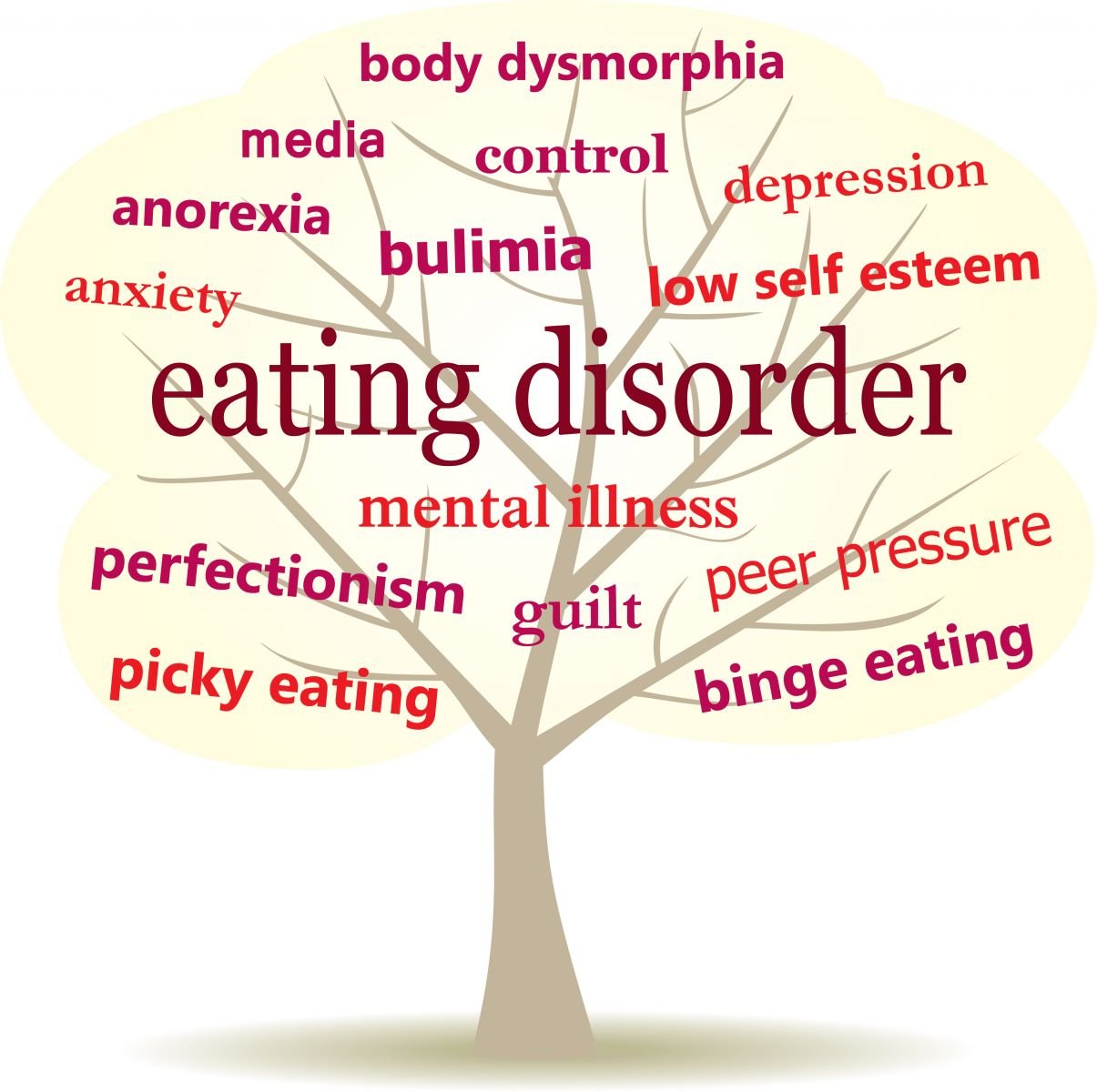Eating Disorder
Eating Disorder. It is common for people to generalize the contributing factor(s) that lead a person to develop an eating disorder. Their reasoning is often misinterpreted and one-dimensional. Many people are quick to assume that eating disorders are a result of people wanting to chase after the so-called “ideal” or size-zero bodies. While this can be a contributing factor and needs to be addressed for its detrimental implications, it isn’t the only one.
Eating disorders can have many causes.
It, much like any other mental health issue, can develop due to a gamut of biological and social factors. According to the National Eating Disorders Association, eating disorders can develop through a combination of genetic disposition, types of personalities, and environmental factors.
Research indicates that some people are born with a higher risk of developing an eating disorder at a later age in their life.
Now, when this predisposed vulnerability is combined with environmental factors such as anxiety caused by a traumatic experience and/or uncongenial social environment, an individual can rapidly be pushed to a state where he struggles to have a healthy relationship with food.
Anxiety, low self-esteem, and poor mental health remain the leading reasons for people to develop an eating disorder.
- The desire to fit into the ideal body type comes much later.
- To the untrained eye, it can be difficult to know if someone is struggling with their eating habits.
- In a society that has a somewhat distorted definition of health and doesn’t speak openly about mental health struggles, the signs that there might be something deeper to a person’s eating habits are often dismissed and, even at times, praised.
For instance:
A person obsessed with exercise and calorie counting is often appreciated for their dedication and willpower.
- A picky eater is dismissed as being someone who has a finer taste for food.
- And so, in a way, society appreciates and even shifts the concept of picky eating and calorie counting.
- This is where we have it completely wrong.
- Eating disorders hold the highest mortality rate of any other mental illness.
- That is why early detection and intervention are the keys to helping someone recover and thrive.
Here are some warning signs that might suggest that someone could be struggling with disordered eating:
- You find yourself consumed by or completely disinterested in food.
- Both are extremes and both are equally damaging to your health.
- You adhere to a strict diet and/or exercise plan and don’t leave any room for cheat days.
- You’re obsessed with your weight and size and a slight change in it can send you into an anxiety attack.
- While these are some of the more obvious signs, they certainly aren’t the only ones.
- If you think your anxiety is taking over your ability to have a healthy relationship with food, then it’s time you sit back and address these issues.
The Role of Nutrition in Controlling Symptoms of Anxiety
- When it comes to controlling the symptoms of anxiety, what you eat can ultimately determine how your day is likely to go.
- Incorporating healthy eating habits can mean the difference between experiencing the worst of your nightmares and a sense of calm.
In general, experts suggest:
- Consuming smaller but regular meals
- Choosing whole grains and good carbohydrates instead of processed grains and complex carbohydrates
- Avoiding refined or artificial sugar as well as canned or packaged foods
- Consuming herbal tea instead of caffeine-rich drinks
- Avoiding alcohol
- Getting your daily dose of multi-vitamins
- Consuming foods rich in omega-3 fatty acids such as nuts, seeds, and cold-water fish
- Consuming probiotics and fermented foods
- Staying well hydrated
Exercise as an Anti-Anxiety Treatment
- Exercising regularly can help alleviate triggers of anxiety.
- If you suffer from anxiety and haven’t already engaged in regular exercise, then it’s time you consider incorporating physical activity into your daily routine.
9 Mind-Blowing Tips to Achieve Any Habit For Success You Want


Comments are closed.